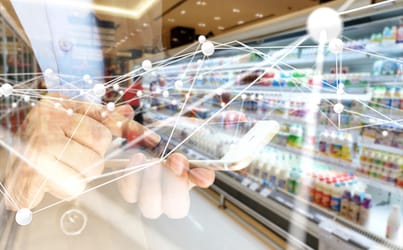How should retail respond to the fourth industrial revolution
21 Jun 2020
As a new wave of technology signals further changes to our lives and the regional ecosystem, how should sectors such as retail adapt?
As a society, we are unprepared for the changes coming our way in the Fourth Industrial Revolution (4IR). This change, characterised by a fusion of technologies, is revolutionising the relationships between our physical, digital, and biological worlds. The coming fundamental shift will impact you, your community, and the rest of the world. As the beginnings of this technological transformation are taking hold, we must prepare ourselves now for coming challenges that will deeply alter the way we live, work, and communicate. Internationally, some businesses are responding with initiatives aimed to address the situation proactively. In the Middle East and North Africa (MENA) region – and the UAE in particular – the government’s efforts to embrace the opportunities of the 4IR have resulted in strides being taken at an unprecedented pace towards a more tech-driven future. From a retail perspective, we must act now to understand how our sector fits into this revolution and find solutions that enable retailers to thrive before it is too late.
Lockdowns and retail trends
A recent global coronavirus study of 17 markets, including Australia, Brazil, Canada, China, France, Germany, Japan, New Zealand, Singapore, South Africa, the UK and USA, discovered that over 40 per cent of respondents say they will shop online more frequently after the Covid-19 outbreak. Regionally, a study of 10 AME markets, including the United Arab Emirates and Saudi Arabia, revealed up to 40 per cent of respondents are shopping online more than before the novel coronavirus outbreak. As we monitor the shifting expectations of the consumer during these times of crisis, we can witness new technologies and online platforms gaining prominence. Preliminary data suggests these trends will remain as the new normal after the pandemic has subsided. The retail sector must prepare for the impact of technologies like artificial intelligence (AI), robotics and internet of things (IoT). These high-tech developments are at the core of the 4IR, and no sector will be immune to their advancements. In my opinion, we will look back at this time as a watershed moment. Perhaps the most well-known of all retail impacts is the present growth and progress of e-commerce. Currently, the UAE is the most advanced e-commerce market in the Middle East and North Africa – according to a joint study by Dubai Economy and Visa – revealing an estimated annual growth of 23 per cent between 2018 and 2022. While customers will continue to seek the experiential elements of the physical store experience, Covid-19 has pushed many non-e-commerce users into the digital revolution. This spike in online users is expected to remain constant from here on out.
Embracing the revolution
We know that searches related to ‘online grocery’ in the UAE grew 560 per cent between January 2020 – when the first Covid-19 case was announced in the UAE – and March 2020. All indications show that these numbers will not descend to pre-Covid-19 levels when the pandemic passes. Research commissioned by global consultancy firm Kearney Middle East asked consumers if they would maintain their current shopping behaviours after the pandemic: 48 per cent in the UAE and 69 per cent in Saudi Arabia answered ‘yes’. This behaviour usually translates to shopping that is less frequent, more planned, and bigger grocery purchases online. Further, the World Economic Forum has estimated the UAE’s 2020 e-commerce market to be valued at $27.2bn, with similar growth across MENA. I believe that during and post-Covid-19 purchasing habits and preferences will signal a turning point in how we embrace the 4IR. Customers will not return to their previous consumption behaviours, and we will see winners and losers across the retail landscape as some leaders recognise the coming transformation, and others fail to prepare for the new way of life.
This article was first published in gulfbusiness.com
X





